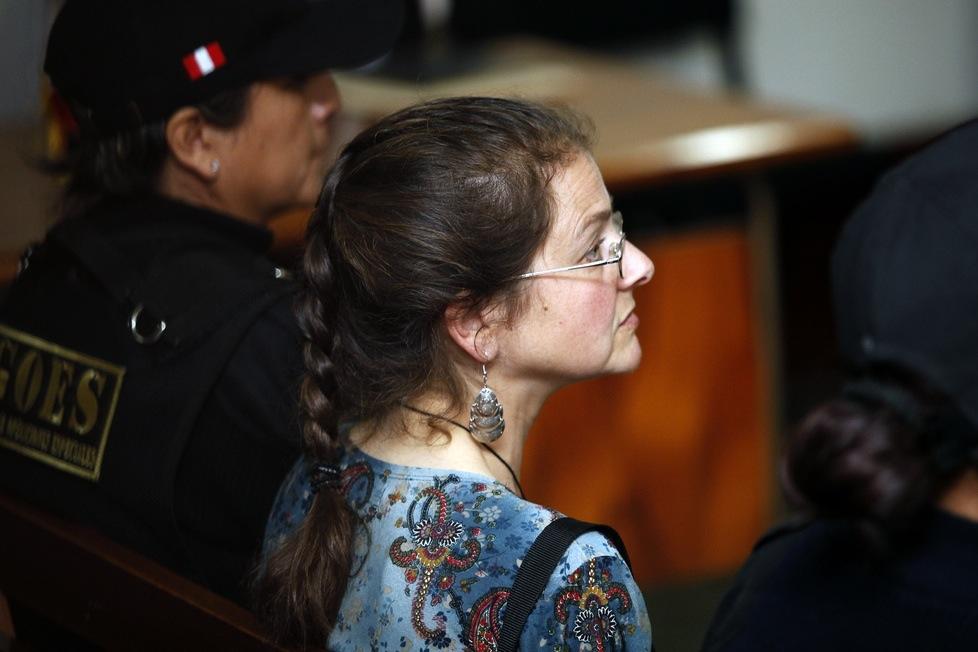Lori Berenson, once again in the spotlight
Lori Berenson.
LIMA, Peru — Lori Berenson, the New Yorker convicted of terrorism in Peru, has once again found herself unwittingly in the eye of a political storm in the South American country.
Berenson, 42, who is on parole after serving 15 years behind bars, was given permission by a judge to take her two-year-old son to visit her parents in New York for the Christmas period. The trip was her first outside Peru since being detained here in 1995.
To the surprise of many Peruvians, she complied with the terms of the court order and returned to Lima yesterday. But that came too late to stop an outraged Peruvian congress from unanimously passing a new law that prevents terrorism parolees from leaving the country.
The law means that Berenson’s brief return to her hometown will be her last until her 20-year sentence ends in 2015.
Read more: Did Peru commandos execute terrorists?
“If after this [law], some judge says that it is open to interpretation, then we are in unpredictable circumstances,” Alberto Beingolea, of the Popular Christian Party, who heads the congressional justice committee, told La Republica newspaper.
That appeared to be a warning to judges not to challenge the legislature’s will on an issue that is intensely sensitive in Peru, where nearly 70,000 were killed in the 1980s and 1990s as the government battled far-left groups.
Congress is now debating another bill that would require the tracking of terrorism parolees. ”The idea is that those who have committed crimes or caused the death of thousands of Peruvians cannot continue with illicit activities,” said Tomas Zamudio, head of the congressional defense committee. “We want to ensure that they have completed their rehabilitation.”
It is hardly the first time Berenson, who has avoided commenting publicly since she flew to New York, has endured a populist backlash in Peru.
After her initial release in 2010, she was detained again on a technicality, before finally being released for good. She then endured calls from rightwing media and politicians for her to be deported from Peru even though the law requires her to reside in the country until her sentence ends.
And she was prevented from boarding her plane to the US on December 17th by immigration officials who claimed her papers were not in order. She eventually flew to the US the following day.
Berenson was arrested on a bus in downtown Lima in 1995 hours before police raided a house she was renting. There they found members of the Tupac Armaru Revolutionary Movement (MRTA by its Spanish initials), 8,000 rounds of ammunition and 3,000 sticks of dynamite.
Although less bloody than the larger Shining Path terrorists, the MRTA was responsible for numerous assassinations as well as the 1997 siege of the Japanese ambassador’s residence. Berenson has denied knowing the property was being used to launch violent attacks.
Ever since her arrest, Berenson’s has been one of the most high-profile terrorism cases in Peru — even though she was never accused of carrying out violent acts — thanks perhaps to her background as US citizen from a comfortable, academic family.
